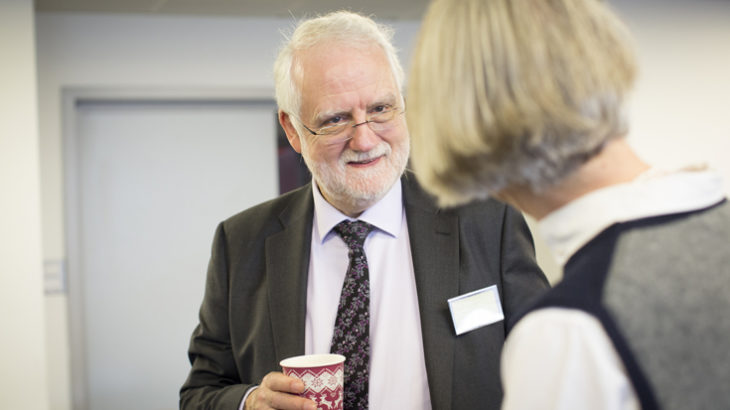Guest Post: Information Disclosure

Mark Warner is a PhD researcher based at the Institute of Digital Health at University College London. As part of Privacy&Us, a network of 13 researchers across the EU, he is exploring usable privacy within the healthcare domain. His research is in better understanding and supporting users decision-making around healthcare data disclosures, taking into account both the cost and benefits of disclosure to both the individual and wider society.
I am a PhD researcher at UCL’s Institute of Digital Health, exploring the landscape of healthcare data and how technology can be used to better support users making decisions around their healthcare data disclosures. While privacy is my main research focus, it is important to me that I understand the significant benefits that data can provide, both through the research it enables and the technology it supports.
Having been recommended attending The Data Dialogue by a colleague who attended a previous event in the series, I was particularly interested in Prof. Robert Stewart’s talk on the challenges and opportunities in healthcare data. His talk provided me with a broader understanding of health informatics and allowed me to see the significant translational research benefits healthcare data can provide. What was particularly interesting was the way in which non-healthcare data is being used to develop a broader understanding of the causes and impact of certain medical conditions.
“As privacy is a growing concern within our societies, I would like to see more discussions on how technology can be used not just to exploit the data being disclosed, but to protect the privacy of individuals disclosing that data.”
One of the highlights of the day for me was the panel discussion at the end. I asked whether people could really make an informed decision to disclose personal information when so much uncertainty exists around how their data was being used. The panel all agreed that it was a significant challenge, and that it was important to provide feedback to the user on how their data was being used, and how the data they disclosed was benefiting them and society. These discussions highlighted to me that the challenges I am addressing in my research are not unique to healthcare, especially with a growing amount of non-medical data being used to support medical research.As privacy is a growing concern within our societies, I would like to see more discussions on how technology can be used not just to exploit the data being disclosed, but to protect the privacy of individuals disclosing that data. As the world of big data is complex, fast moving and for most, difficult to comprehend, I would like to see discussions on how people can be better informed on how the data they are disclosing is going to be used, to enhance the informative element of informed consent models.
While law, regulation, and data governance play important roles in managing privacy, technology can play its part too. Privacy&Us researchers are designing and developing novel solutions to questions related to the protection of privacy, considering both the multidisciplinary and intersectoral aspects of the issue.

